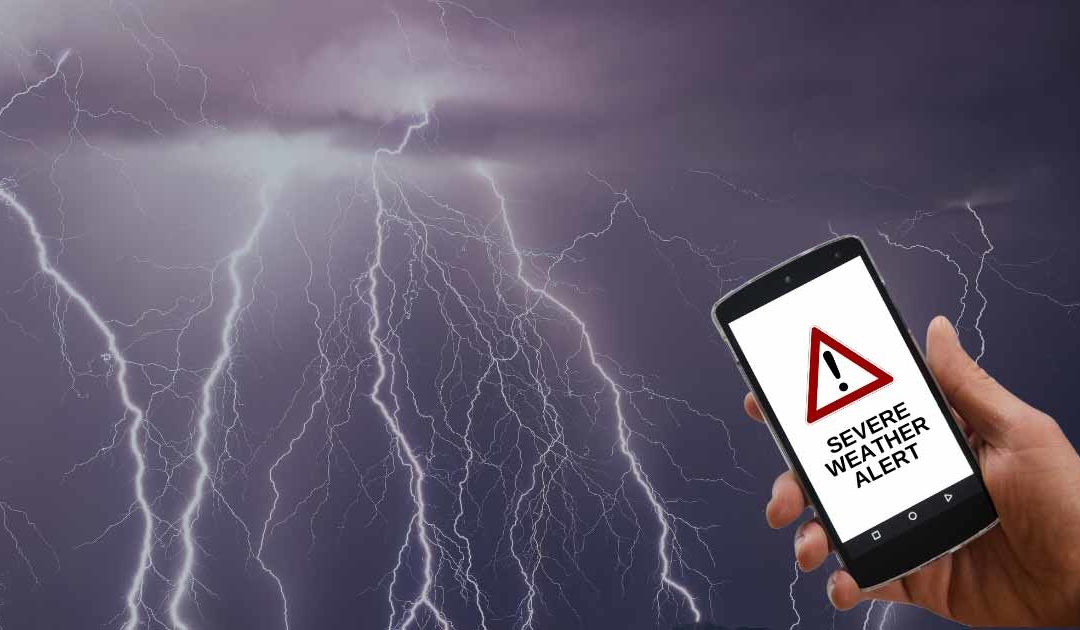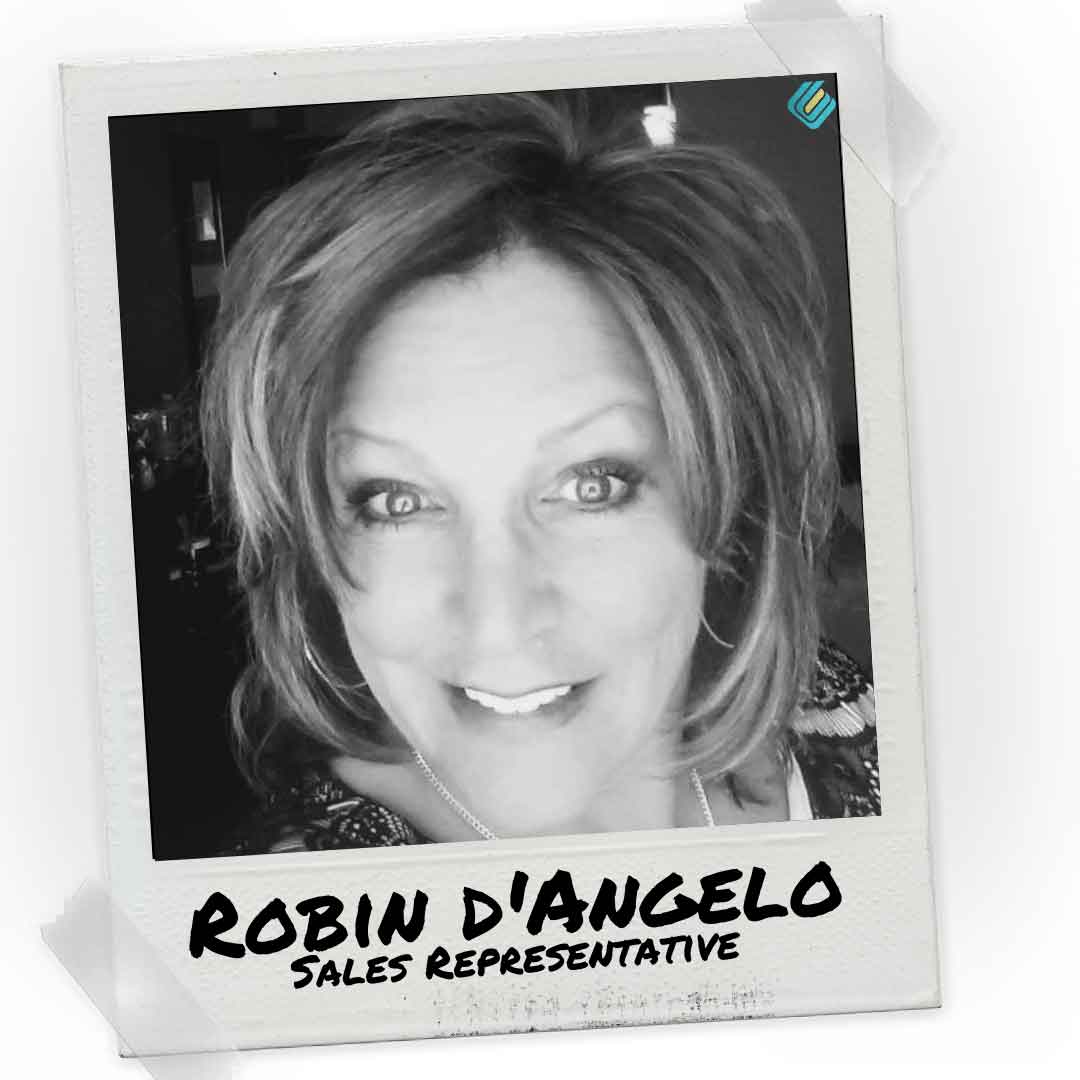by California Casualty | News |
We have amazing employees at California Casualty. The New Employee Spotlight is a series aiming to highlight the talented individuals that are brand new to our team. Please help us give them a warm welcome!
Today we’re spotlighting New Customer Care Specialist, Raphael Taylor Sr.
Let’s get to know Raphael!

What California Casualty office do you work in?
I work in the Kansas City office.
Where are you from?
Born and raised in Kansas City
What is one interesting fact you want us to know about you?
I can play 13 instruments!!
If you could eat one food for the rest of your life, what would it be?
Grilled pork chops
What do you like to do on the weekends?
I’m really into live music
Mow the grass (I know, I know!!)
Chasing my 6-year-old around!
What made you want to start your new career with California Casualty?
I needed a change from the education industry. After hearing about how California Casualty caters to a specific group of people, I was really intrigued by how they looked out for our Essential Workers. Once here, I love the overall interaction with my co-workers. It was clear that “these are my people!!”
If you want to learn more about Raphael or are interested in a career at California Casualty, connect with him on LinkedIn! Or visit our careers page at https://www.calcas.com/careers

by California Casualty | Safety |
Many things in life come without warnings. But fortunately for us, severe weather isn’t one of them.
Meteorologists are constantly tracking dangerous storms and weather patterns. Tapping into their early warnings is key to protecting your home, your possessions, and your family. Here’s what you need to know to stay one step ahead of Mother Nature.
First, let’s take a look at severe weather.
There are many types of severe weather. Examples include thunderstorms, snowstorms, hail storms, blizzards, hurricanes, tornados, and cyclones. High winds and flooding associated with some of these weather events can do great damage to your home and belongings. Having a disaster plan is great, but knowing when disaster is going to strike is crucial. That’s where early warning systems come in.
Chances are you already have an emergency alert system.
The U.S. government has the capability to send wireless emergency alerts (WEAs) right to our cell phones. Agencies like the National Weather Service and FEMA are among the organizations that can do so. There is no signup required and you are not charged for the data used. Alerts come automatically with a special sound and vibration. Most phones are enabled for these alerts; to find out if your particular model is, check the WEA enabled list or contact your wireless carrier.
Check to see that your phone is enabled for alerts.
WEAs may be free but if your phone isn’t enabled to receive them, you won’t. Fortunately, it’s easy to activate this setting.
Apple (IOS) phones
-
- Go to settings, then notifications.
- Scroll down to government alerts.
- Slide the circle so that it is green for the alerts you want. For severe weather, you will want emergency alerts and public safety alerts.
Android phones
-
- Go to apps & notifications.
- Click on notifications.
- Turn on “allow alerts.”
- Make sure each alert that you want is enabled. For severe weather, you will want extreme threats, severe threats, public safety messages, and state and local tests.
While WEAs are good ways to get information, generally these alerts won’t arrive until there is an emergency. You may find value in getting advance notice.
Other ways to get emergency information:
If you do not have a WEA-capable phone, you can still get critical and timely information from NOAA Weather Radio, local media broadcasts, and the emergency alert system on your TV or desktop and mobile devices. Make sure to tune in if you suspect an impending weather emergency. In addition, your local utility company, township, city or state may offer free alerts. Check with your electric or gas company, and with city hall or municipal government. Find out how to sign up for their free alerts.
There’s an app for that, and it’s free.
You can get advance notice and more robust information by downloading a weather app on your smartphone or mobile device. Here are some popular free options.
-
- AccuWeather: Weather Alerts provides hourly forecasts, news, and updates as well as weather-tracking radar.
- AlertSense offers public safety alerts as well as severe weather warnings. You can set quiet hours so only emergency alerts are sent with sound.
- Emergency: Alerts is free from the American Red Cross. With this app, you can look up Red Cross shelters and alert loved ones you are safe. It also comes with a flashlight, a strobe light, an alarm, and preloaded content on everything from hurricanes to disasters that is accessible without an Internet connection
- FEMA offers real-time weather alerts from the National Weather Service for up to five locations of your choice. It also provides information on storm preparedness and filing a flood claim.
- Storm Shield is free with options for paid upgrades. This app provides alerts in text and voice and tracks conditions in up to 5 locations.
- WeatherBug is free with options to purchase in the app. It offers forecasts in real-time as well as weather maps, and more.
- The Weather Channel for Apple or Android offers live radar updates and local weather forecasts.
Stay one step ahead of Mother Nature with coverage from California Casualty.
No matter how well you prepare for severe weather, unfortunately, sometimes Mother Nature gets the upper hand. That’s why having the correct home insurance coverage is so important. Make sure you and your family are fully protected. For questions on home insurance or ways, you can save on your own insurance policy, call a California Casualty agent today at 1.866.704.8614 or visit our website www.calcas.com.
This article is furnished by California Casualty, providing auto and home insurance to educators, law enforcement officers, firefighters, and nurses. Get a quote at 1.866.704.8614 or www.calcas.com.
by California Casualty | News |
We have amazing employees at California Casualty. The New Employee Spotlight is a series aiming to highlight the talented individuals that are brand new to our team. Please help us give them a warm welcome!
Today we’re spotlighting New Sales Representative, Robin D’Angelo
Let’s get to know Robin!

What California Casualty office do you work in?
I work in the Kansas City office.
Where are you from?
Born in Knob Noster, Mo – daughter of an Air Force lifer. Moved back & forth from FL to MO when young, with a little jaunt stationed in England. Settled here.
What is one interesting fact you want us to know about you?
Hmmm – What happens in KS stays in KS but I have been stuck in an elevator twice and that usually doesn’t happen to anyone even once.
If you could eat one food for the rest of your life, what would it be?
Street Tacos
What do you like to do on the weekends?
Pontooning with friends
Seeing kiddos
Kayaking – my new love!
What made you want to start your new career with California Casualty?
The people and the history
If you want to learn more about Robin or are interested in a career at California Casualty, connect with her on LinkedIn! Or visit our careers page at https://www.calcas.com/careers

by California Casualty | Homeowners Insurance Info |
Having extra cash on hand is always appreciated. One unexpected place you might find it is with your home insurance.
We’ve compiled some well-known — and lesser-known — ways that you can save money on home insurance. Follow these tips to lower your bills.
Raise your deductible.
The deductible is the amount that you pay before the insurance company pays a claim. Higher deductibles mean lower payments. According to NerdWallet, you could save 20 percent by raising a $500 deductible to $1,000. If you do increase your deductible, make sure that you can cover the costs of repairs should something happen.
Ask about discounts.
You may qualify for insurance discounts for being part of a professional association, such as groups for teachers, nurses or first responders. There are also discounts for being retired, for paying via automatic bank payments, and for paying in full upfront. You may qualify for a new home discount, or a discount if you have updated your utilities (electrical, plumbing, heating, cooling) in an older home. There are discounts for a new roof and an automatic sprinkler system. You can even be rewarded for being a loyal customer.
Remove attractive nuisances.
You may be paying extra for high-risk items. These attractive nuisances are potential dangers that could attract kids and cause injuries. Examples include trampolines, swimming pools, and playground equipment. If you are willing to get rid of these items, it may lower your payments.
Skip a payment.
Some insurance companies allow you to skip payments. At California Casualty, you have the option to skip payments in either the summer or the winter!. Ask your agent for details.
Take care of minor repairs.
Your home insurance policy can take care of both major and minor damage from a covered loss. But sometimes it’s easy enough to take care of those minor repairs on your own, out-of-pocket. That way you’ll avoid filing a claim and if you remain claims-free for a period of time, that qualifies for a discount, too.
Buy home and auto insurance from the same company.
When you bundle your home and auto insurance, you can often qualify for reduced rates, saving hundreds of dollars.
Make your home secure and disaster-resistant.
The better protected your home is, the less chance that there will be a claim. That’s why disaster-proofing and securing your home can save you in insurance premiums. To protect against disasters, consider storm shutter, impact-resistant roofing. Having a fire extinguisher could earn you a discount. For enhanced security, a burglar alarm and deadbolt locks can earn you discounts. While some of these repairs and updates are expensive, they will pay off in the long run. Remember that flood and earthquake insurance are not included in standard homeowner’s coverage. However, you can make home improvements that reduce their cost as well. Importantly, you will need a new home inspection before new rates can take effect, and you may need to pay for it.
Check your credit score.
Your credit score indicates your ability to pay your debts. Missing payments, not having a long credit history, and high credit card balances could create an unfavorable credit score. A credit score under 630 could increase your insurance rates, according to NerdWallet. You can get a free credit report once a year from the three credit agencies, TransUnion, Experian, and Equifax. Check your score, and take actions to improve it.
In addition, in some states, you can get your credit-based insurance score, which indicates how likely you are to file an insurance claim. If you are eligible for that report, you can find it at CLUE (Comprehensive Loss Underwriting Exchange) from LexisNexis
Review your insurance limits annually.
If your insurance is billed to your mortgage bank, you may not think much about your annual premiums. But it’s a good idea to review your policies annually to make sure you’re not paying for coverage that you no longer need.
This article is furnished by California Casualty, providing auto and home insurance to educators, law enforcement officers, firefighters, and nurses. Get a quote at 1.866.704.8614 or www.calcas.com.

by California Casualty | Safety |
Football season is finally here! If you’re anxiously getting ready to start the season with some pre-game festivities, there are a few important safety reminders you should brush up on before kickoff. Here’s how you, your friends and family can all tailgate responsibly.
Tip #1: Handle raw meat with care.
You may be known for your spicy chicken wings or beefy burgers but make sure you know the rules for handling raw meat.
-
- Before the tailgate, store meat on the lowest shelf of the refrigerator or in a meat drawer if you have it. Plan to eat or freeze it within 3 to 4 days.
- On tailgate day, store your meat in leakproof plastic bags or containers, with ice in a cooler.
- Wash your hands before and after handling raw meat.
- Wash utensils, cutting boards, and plates that come in contact with raw meat.
- Use separate cutting boards, plates, and utensils for raw meat and for produce.
- Don’t use the marinade from your raw meat on cooked meat. If you want to use it, cook it to a boil first.
Tip #2: Fire up the grill carefully.
Grilling outdoors is a favorite family activity. But injuries from burns or fires can put a real damper on family fun.
-
- Have a fire extinguisher on hand just in case. If you don’t need it, someone else might.
- Enforce a 3-foot “kid-free” zone around the grill. Never leave the grill unattended.
For propane grills:
-
- Be careful not to overfill a propane tank.
- Transport your propane tank safely, so that it is upright and secured in your vehicle.
- Check the connection between the propane tank and the fuel line to make sure there are no leaks. You can do this by making a solution of 50% liquid dish soap and 50% water, and brushing it on the hose connections. If there are leaks, you will see air bubbles when you turn on the propane.
For charcoal grills:
-
- Never add lighter fluid to an already lit fire on a charcoal grill. That can cause the fire to flare up and even ignite the chemical in the can or cause a chemical smog.
- While you can use lighter fluid to start a charcoal grill, consider using rolled-up newspaper instead. Or consider a charcoal chimney, which packs the briquettes together for easier lighting.
- Use plenty of water to douse hot coals after you’re done cooking. Give them a stir to make sure there are no lit embers.
- Do not put the wet coal and embers in plastic, paper, or wooden containers after use. They could still be hot enough to start a fire. Wait until they are completely cool and put them in a coal-safe container to transport them home.
Tip #3: More food safety to keep in mind.
A few hours out in the sun could turn a delicious dish into a potentially hazardous one. Protect your family from food poisoning by following guidelines for food safety.
-
- When grilling, use a food thermometer to check the temperature of your meat. According to gov, chicken should be cooked to an internal temperature of 165°F and ground beef to at least 160°F.
- Nonperishable foods, such as breads, chips, and cookies, can be left out but should be covered for freshness. Condiments like ketchup and mustard are also okay to sit out due to their acid content.
- Perishable foods that typically are refrigerated should not sit out for longer than 2 hours.
- When in doubt, toss it out. If you’re unsure if food is safe to eat, don’t take a chance on it. Throw it out.
Tip #4: Protect yourself from the sun and heat.
Even on a cloudy fall day, you can get sunburned or experience dehydration. Protect yourself and your family.
-
- Wear sunscreen whenever you will be outside for an extended period of time. Reapply every 2 hours.
- Wear sunglasses to protect your eyes and a hat to protect your head from UV rays.
- Find a shaded area near your tailgate to escape the sun and the heat. Or create your own shaded area with a pop-up tent or beach umbrella.
- Alcohol can dehydrate you. It causes your body to remove fluids. Drink water as much as possible and in addition to the alcohol.
- Be aware of the signs of dehydration: muscle cramps, fever/chills, dry mouth/skin, fast heartbeat, confusion, drowsiness, irritability, or a dark urine color. Drinking water is usually the best way to rehydrate.
Tip #5: Appoint a designated driver and drive safely.
Tailgates are all about having a good time, and usually involve alcohol. But drinking impairs driving with sometimes deadly results.
-
- Before you even leave, choose your DD — designated driver – the one who will remain sober. If you have a regular group of friends that tailgate together, you can rotate that duty.
- Better yet, plan to tailgate sober. You can always celebrate after the game, back at home.
- As you search for the perfect tailgate spot, watch for children and adults darting in front of your car. Do the same when you exit after the game.
- Despite your best efforts, accidents can still happen. If you are the victim of a parking lot accident, know your car insurance coverage and alert your insurer as soon as possible.
- If there’s no one who is sober and can drive home, call a cab or ride-share service. It’s far better to get home safely than endanger yourself and others.
Hosting a party instead of tailgating? No worries. Check out our hosting safety guide here.
This article is furnished by California Casualty, providing auto and home insurance to educators, law enforcement officers, firefighters, and nurses. Get a quote at 1.866.704.8614 or www.calcas.com.





